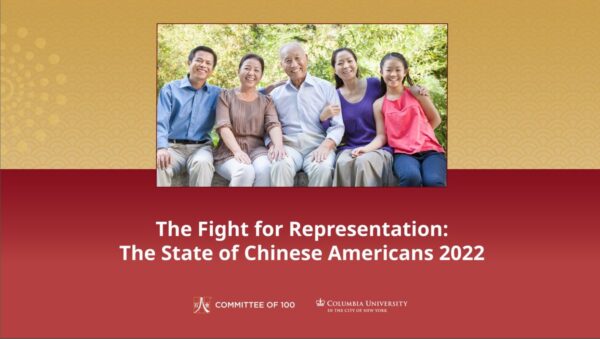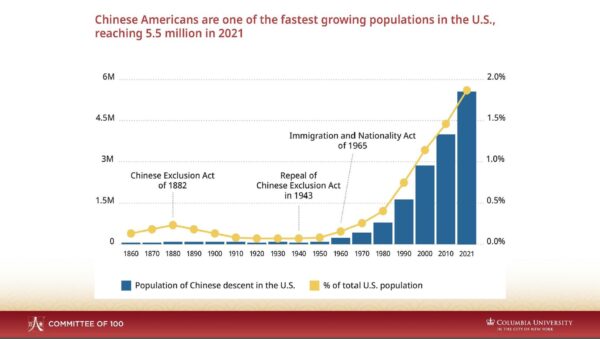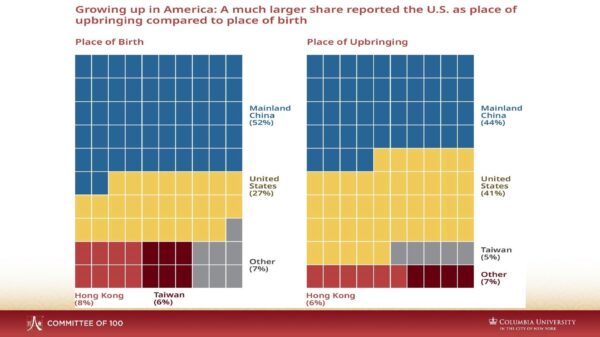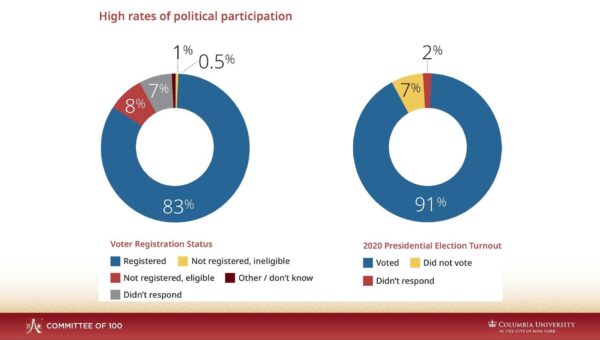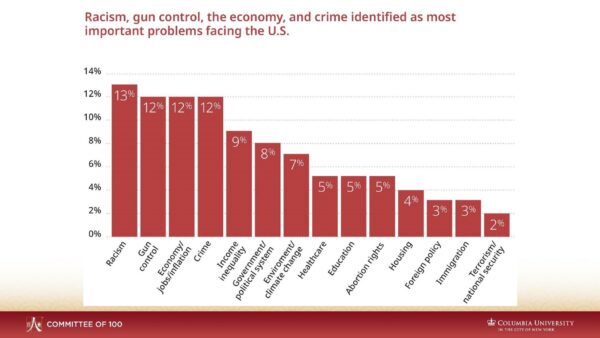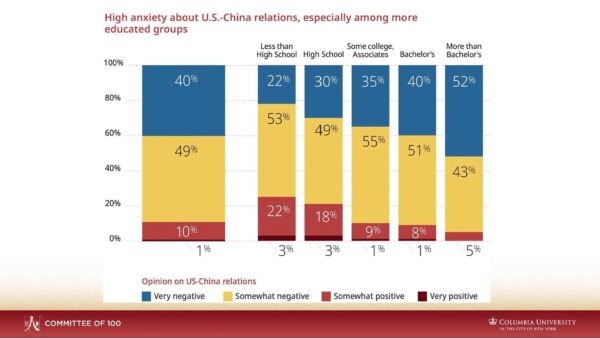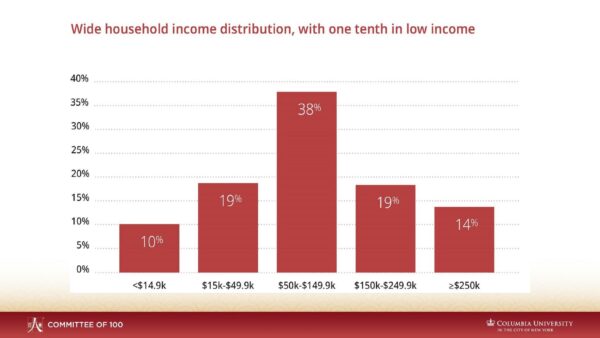Recently, the Committee of 100 and Columbia University published a report on “The State of Chinese Americans”:
“New York, NY (April 27, 2023) – Columbia University’s School of Social Work, one of the world’s leading research universities, and Committee of 100, a non-profit membership organization of prominent Chinese Americans, today announced the results from a year-long research project and survey that looked at the health, economic, and sociopolitical conditions of today’s Chinese American population.
The first and largest project of its kind, the “State of Chinese Americans” survey gathered information from nearly 6,500 participants from across the U.S., compiling data related to demographics, politics, cultural identity, health, economic security, and social engagement.”
I remember reading last October when the survey was going out and became interested to learn about the findings. Given how large the survey seemed to be in terms of its reach, I am impressed with the sample size of 6,500 respondents.
You can read the press release for the key highlight findings, including these 3 major categories:
1. Racism against Chinese Americans continues.
- Nearly 3 out of 4 (74%) Chinese Americans having experienced racial discrimination in the past 12 months;
- 55% worrying about their safety relating to hate crimes or harassment;
- 9% having been physically intimidated/assaulted and 7% having had property vandalized/damaged;
- Nearly half of the survey respondents (46%) reported being treated with less respect than other people at least a few times in the past 12 months;
- 1 in 5 reported that people made a racial slur, called them a name, or harassed them in person or online at least a few times in the past 12 months
I’m not surprised by these above survey results given the rise of Asian hate crimes.
2.The overwhelming majority of Chinese American citizens vote.
3.Chinese Americans are not homogenous.
The slides/data below (all slides courtesy of the Committee of 100 and Columbia University) intrigued me the most:
The tremendous growth in the Chinese American population in the United States is amazing, especially the past 30 years, and certainly since my father first came to the U.S. in the early 1960s for graduate school. It’s also interesting to see the delineation between those from China and Taiwan, given that the Taiwanese population very small when compared to China’s.
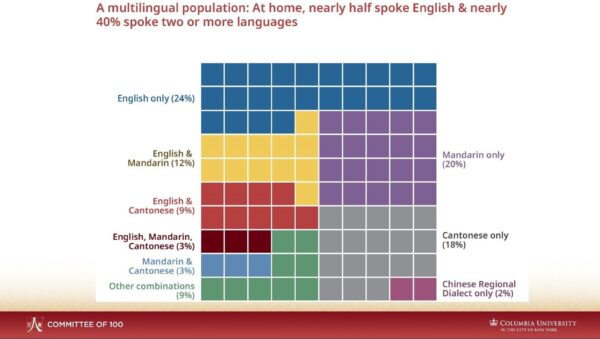 Having been born & raised in Western Massachusetts by two Taiwanese American parents, I’ve always been interested in both the backgrounds of Chinese and Taiwanese Americans and their linguistic capabilities.
Having been born & raised in Western Massachusetts by two Taiwanese American parents, I’ve always been interested in both the backgrounds of Chinese and Taiwanese Americans and their linguistic capabilities.
My parents said that I first learned how to speak Mandarin Chinese as a kid (but of course I don’t remember that. But I do remember my parents speaking a mix of Mandarin and English to my brother and I while growing up, and us repsonding mostly in English. My parents never spoke to us in Taiwanese – as my father once told me, they thought it was more practical to learn Mandarin since that was much more widely used. In addition, my parents spoke Taiwanese to each other when they didn’t want my brother and I to know what they were saying!
I was heartned to see that the level of voter registration and voting in 2020 presidential election was high. Personally, one of the motivations for me to start blogging about Asian American politics was to see active civic engagement beyond voting. I’m not sure how one would capture that in a survey (like asking if a Chinese American has ever attended a political rally or protest or march?), but as I’ve blogged before, I was quite excited to see so many Asian Americans show up in San Francisco at an Andrew Yang rally a few years ago when Yang was running for president.
Given the rise of Asian hate crimes during COVID-19, it’s no surprise that racism and gun control are big issues among Chinese Americans, on par with the economy/jobs/inflation.
I find that the more educated they are, the Chinese Americans are more concerned with the rising tensions between the United States and China. I have to imagine that the more educated you are, you’re probably doing better financially and have not only more to lose, but also have more time to think about such things that that might also affect you more directly your job or company.
Finally, I thought this household income distribution slide is interesting. As stated, Chinese Americans are not a monolith, and the “model minority” myth does a disservice to those Chinese Americans in need.
Overall, I’m always glad to see more data on Chinese, Taiwanese and the broader Asian American community. This helps us get a better understanding of the community so we can communicate any specific issues and to change things for the better.

